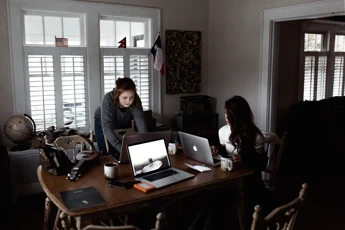Being a landlord is about more than just collecting rent. It’s about fostering a secure and comfortable environment for your tenants. Most of what we’re going to discuss is bound by regulation, but you can still take steps to care for your tenants while remaining compliant.
Here’s how.
Regular maintenance
Think of your property as a fine wine. It gets better with age, but only if you take care of it. Regular maintenance not only keeps your investment in good condition, it also ensures your tenants are warm, safe, and comfortable in their homes. Whether it’s leaky taps or growing damp, it’s best to be proactive, communicate with them about their concerns, and take steps to manage the maintenance of your property.
Safety first
Health and safety aren’t just buzzwords, they’re the pillar of a good landlord-tenant relationship. Make sure your property meets all required safety regulations, from smoke detectors to gas checks.
While not necessary, it’s also wise to give your tenants clear directions in the case of an emergency. What are the best places to evacuate to should they need to? Give your tenant a list of local emergency contacts and you’ll earn some major brownie points.
Wading the legal waters
Understanding the legalities is important when letting a property. Familiarise yourself with regulations about deposits, eviction procedures, and tenant rights. If you’re familiar with the legal framework, not only are you protecting your tenants, but yourself too. This also helps keep the relationship professional and transparent. Know the rules, then play by them.
Communication is key
A good landlord-tenant relationship thrives on effective communication. It doesn’t have to be regular, but if your tenant comes to you with a query, respond as promptly as possible.
A simple, “how are things?” can go a long way to helping your tenants feel taken care of. Remember, it’s a two-way street. Listening is just as important as speaking, so if they have concerns, be sure to hear them out.
Privacy, please
You must always give notice before you enter their home or organise for others to enter the home. This must be written notice (email, text, or a letter will do) and must be at least 24 hours notice. If you don’t give notice, your tenants are well within their rights to refuse you entry. The only times this is not true is in the event of an emergency, be it fire, flooding, or a strong smell of gas.
How to take care of your tenants wellbeing
A property may be just that to you, a brick and mortar building that puts money in your pocket. To your tenants, it’s their home. It’s their sanctuary, and for that reason we always recommend being as attuned as possible to their wellbeing. Ensure the property is secure, safe, and comfortable.
After all, a happy, healthy tenant is likely to stick around.
For more advice about being a landlord, check out our specialty buy-to-let page, designed to help you handle the intricacies of landlord life.
Thinking of becoming a landlord for the first time? Get in touch with one of our expert mortgage advisers and let’s chat about your options!
Important information
There is no guarantee that it will be possible to arrange continuous letting of the property, nor that rental income will be sufficient to meet the cost of the mortgage.
Your property may be repossessed if you do not keep up repayments on your mortgage.
There may be a fee for mortgage advice. The actual amount you pay will depend upon your circumstances. The fee is up to 1% but a typical fee is 0.3% of the amount borrowed.




